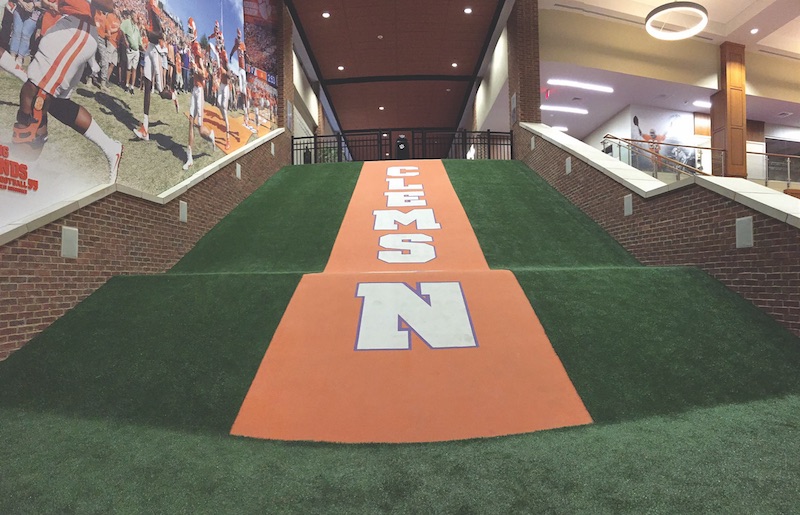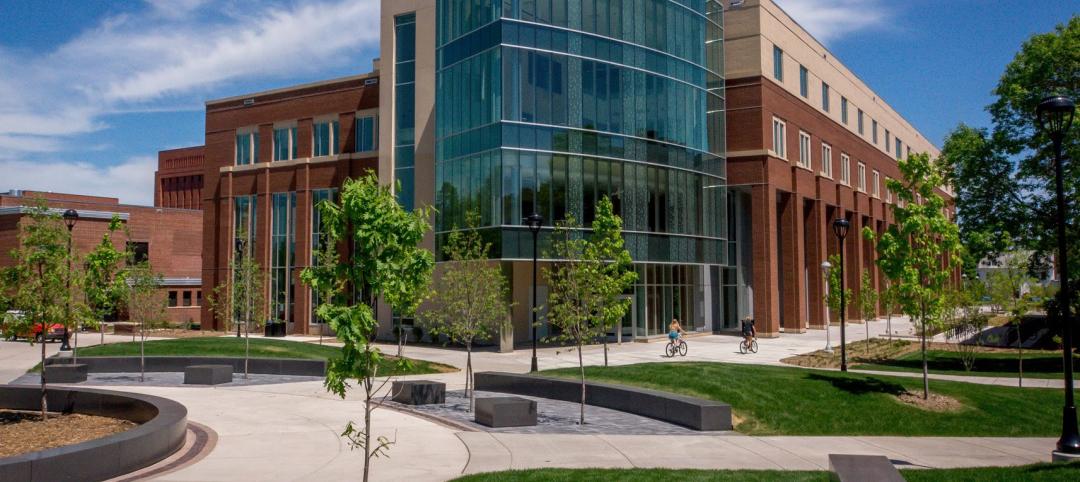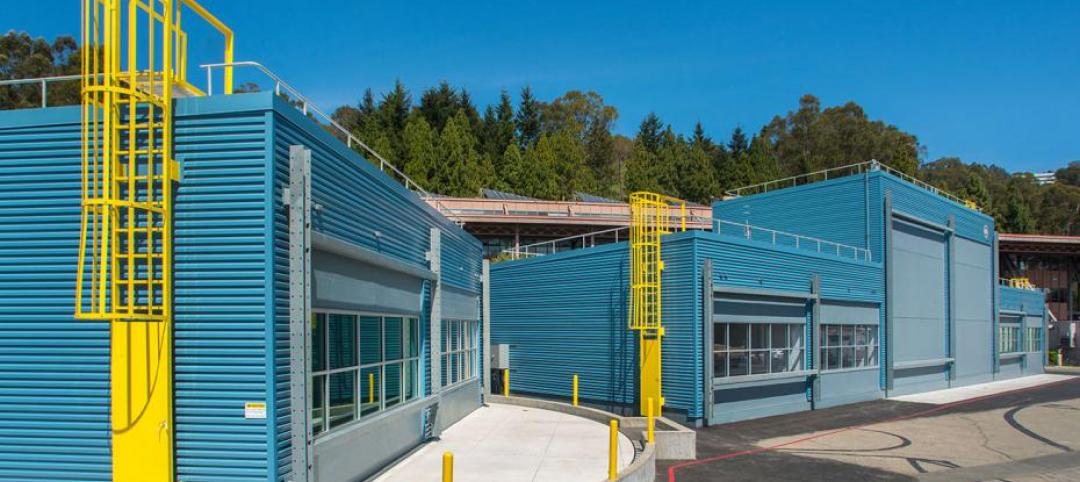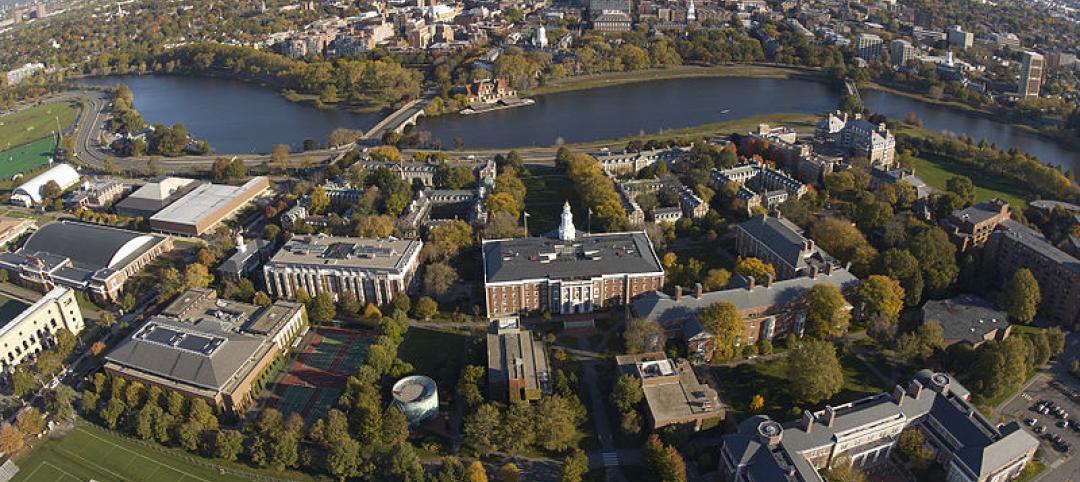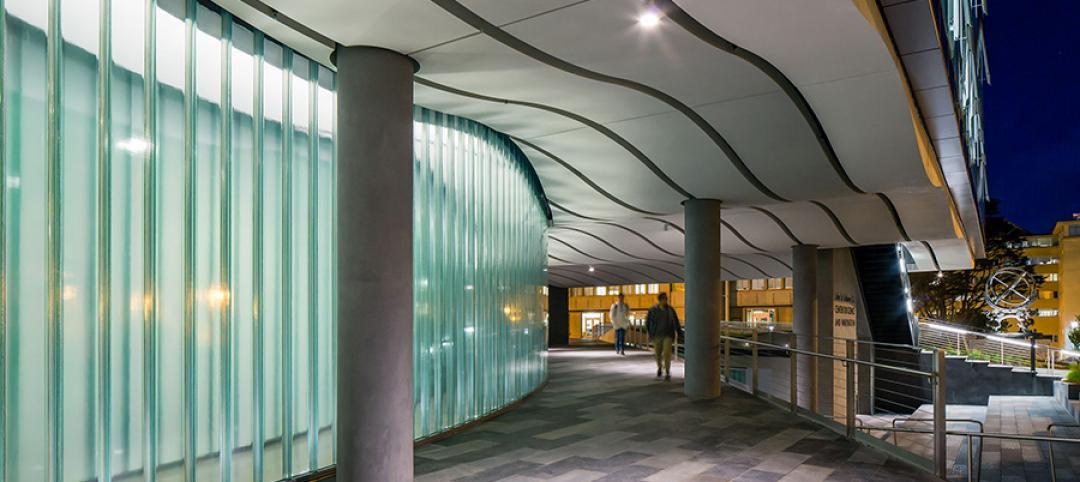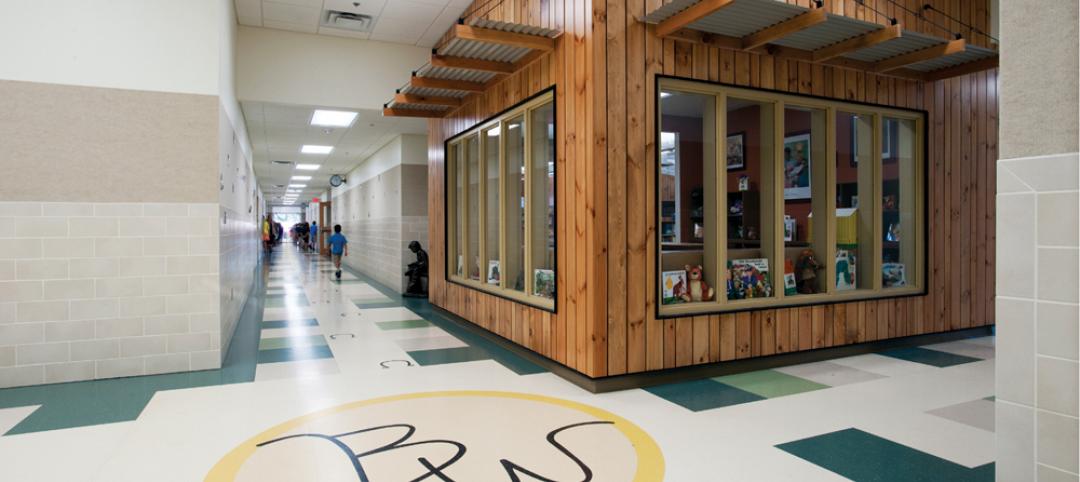Two-lane bowling alley, wiffle ball field, nine-hole mini-golf course, 24-seat HD movie theater, indoor slide, VR studio. Clemson University has certainly upped the ante when it comes to elite Division I football recruiting with its newly christened $55 million Football Operations Complex. The 142,500-sf facility, which opened just three weeks after Clemson’s national championship win over the University of Alabama, adjoins the indoor practice facility and outdoor practice fields, consolidating football operations into one complex. It is the largest football-specific facility in the U.S.
Designed by HOK (sports design architect) and GMC (architect of record), the facility serves as a home away from home for players and staff, with amenities that allow the student-athletes to train, study, and unwind in the same place. Performance spaces include hydrotherapy rooms (both polar and thermal plunge pools), a lap pool, steam room, weight and fitness training centers, a 175-seat auditorium, NFL scout room, and technology for weight tracking and body composition.
Additional leisure and entertainment amenities: outdoor basketball court, barbershop, volleyball and bocce courts, Gatorade fuel bar, and a Nike gear and championship display. It even has spaces dedicated for family visits, like an outdoor kitchen and grilling area, outdoor lounges with gas fire pits, a secluded bonfire pit with rocking chairs, a 20x20-foot inflatable screen for outdoor movies, an integrated family lounge in the player’s locker room, and a covered patio for 75 people.
DPR Construction was the GC on the project.
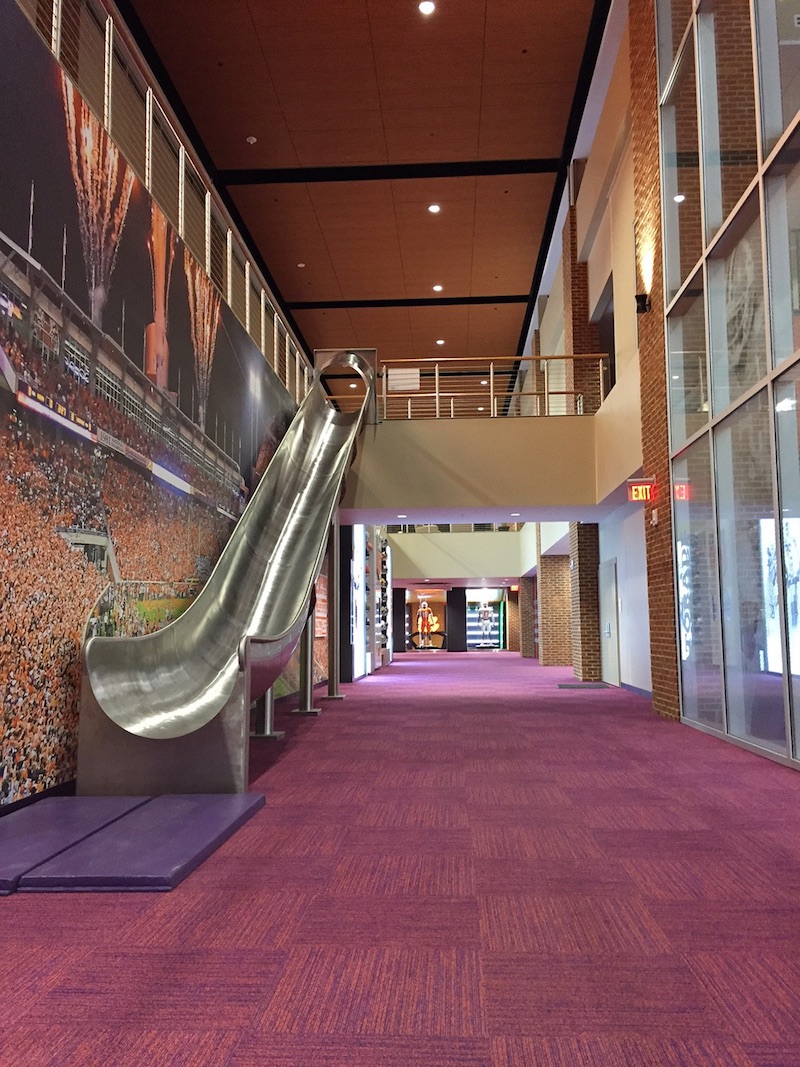 Courtesy HOK.
Courtesy HOK.
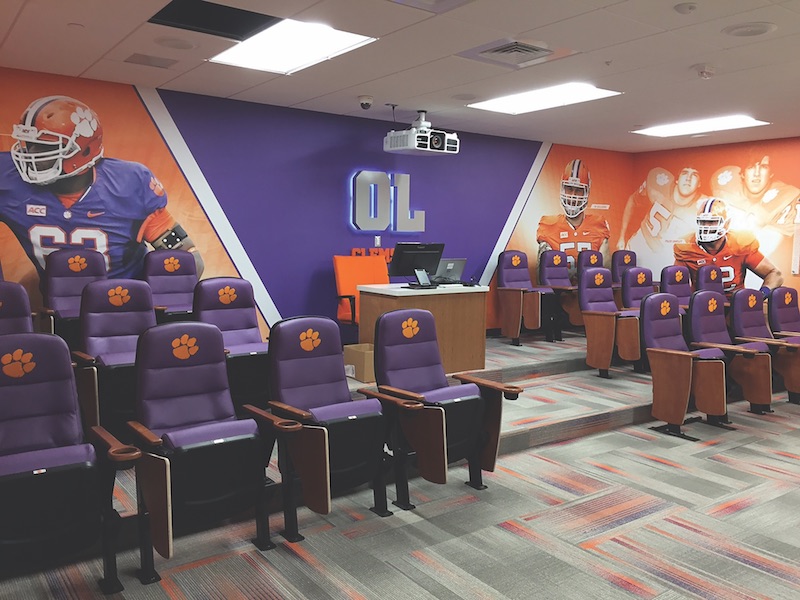 Courtesy HOK.
Courtesy HOK.
Related Stories
| Jul 18, 2014
2014 Giants 300 Report
Building Design+Construction magazine's annual ranking the nation's largest architecture, engineering, and construction firms in the U.S.
| Jul 11, 2014
$44.5 million Centennial Hall opens at University of Wisconsin-Eau Claire
Centennial Hall houses the College of Education and Human Sciences and consolidates teacher education. It is the first new academic building on the UW-Eau Claire campus in more than 30 years.
| Jul 10, 2014
Berkeley Lab opens 'world's most comprehensive building efficiency simulator'
DOE’s new FLEXLAB is a first-of-its-kind simulator that lets users test energy-efficient building systems individually or as an integrated system, under real-world conditions.
| Jul 9, 2014
Harvard Business School to build large-scale conference center
Expected to open in 2018, the facility will combine the elements of a large-scale conference center, a performance space, and an intimate community forum. The new building will be designed by Boston-based William Rawn and Associates.
| Jul 7, 2014
7 emerging design trends in brick buildings
From wild architectural shapes to unique color blends and pattern arrangements, these projects demonstrate the design possibilities of brick.
Sponsored | | Jul 7, 2014
Channel glass illuminates science at the University of San Francisco
The University of San Francisco’s new John Lo Schiavo Center for Science and Innovation brings science to the forefront of academic life. Its glossy, three-story exterior invites students into the facility, and then flows sleekly down into the hillside where below-grade laboratories and classrooms make efficient use of space on the landlocked campus.
| Jul 2, 2014
Emerging trends in commercial flooring
Rectangular tiles, digital graphic applications, the resurgence of terrazzo, and product transparency headline today’s commercial flooring trends.
| Jun 30, 2014
Research finds continued growth of design-build throughout United States
New research findings indicate that for the first time more than half of projects above $10 million are being completed through design-build project delivery.
| Jun 18, 2014
Arup uses 3D printing to fabricate one-of-a-kind structural steel components
The firm's research shows that 3D printing has the potential to reduce costs, cut waste, and slash the carbon footprint of the construction sector.
| Jun 16, 2014
6 U.S. cities at the forefront of innovation districts
A new Brookings Institution study records the emergence of “competitive places that are also cool spaces.”


